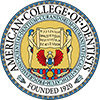Implant Services
Our office recommends that the entire implant process - from surgery to placing the implant to seating the crown - be completed by a board certified prosthodontist. When implants are the chosen treatment, we refer our patients to one of two highly qualified prosthodontists in the area.
Information below is provided as an educational service only.
Sinus Lift Augmentation
After the loss of upper back teeth, your sinuses may enlarge in size. Before new implants replace the lost teeth, a sinus lift augmentation or graft relocates the sinus cavity into its original position and replaces the bone that has been lost as a result of the enlarged sinus. This new bone graft typically takes nine to 12 months to heal before the dental implants can be placed into the grafted bone.
Autogenous Bone Grafting
Occasionally, ideal areas where dental implants are to be placed do not have sufficient bone quantity to predictably place the implants. In these cases, it is often necessary to "borrow" bone from another area of your mouth to graft into the deficient area. Often the area of choice is from the chin or in the back of the jaw where your wisdom teeth used to be.
Implant Site Development
When a tooth needs to be removed due to infection, it is not uncommon to have bone loss around the infected tooth. In these cases, various types of bone grafting can be done at the same time the tooth is removed to facilitate the placement of a dental implant at a later date.
Computer Enhanced Treatment Planning
We have special 3D software that allows us to evaluate your bone quality, bone quantity, and bone location for the best possible placement of your dental implants. This also allows us to work closely and smoothly with your restorative dentist to ensure an ideal result for your dental implants.
Implant Maintenance
Once your dental implant restoration is completed, it is important to keep the area clean and free of infection. Dental implants can accumulate plaque and tartar just as teeth can. Whether you have just one tooth replaced by an implant or several, professional cleanings will be necessary to keep your implants healthy. The time interval for these professional cleanings will be determined by your individual needs.
Implant-Services
Implant-supported dentures are over-dentures fixed to the gums by mini implants. For patients with an uncomfortable or loose-fitting denture, stabilizing it with mini implants can be a more comfortable and functional solution.
Mini implants are placed in the jaw, where they are anchored firmly in the surrounding bone. Attachments are placed in the underside of the denture that connect to the implants. When placed in the mouth, the denture snaps onto the implants, keeping it stable and secure.
What are the benefits of dentures supported by mini implants?
- People who opt for implant-supported dentures are more confident when they talk, laugh, and eat in public. You'll never have to worry about your false teeth slipping or falling out while you eat or are engaged in conversation.
- Implant-supported dentures are far more comfortable because they are secure and feel like natural teeth. There is also less irritation of gum tissue; patients who have conventional dentures often suffer pain and canker sores.
- Implant-supported dentures look more natural than conventional dentures because less plastic is needed for retention. Wearing implant-supported dentures can also help your appearance in the long term by preventing jaw shrinkage and bone loss.
- Patients with conventional dentures have difficulty with speaking clearly. Slurred speech and clicking noises are common problems. Implant-supported dentures can help you relax and talk easily with a more clear and natural voice.
- Best of all, with implant-supported dentures, there is no need to use denture adhesives.
Mini Implants
A mini implant consists of a miniature sized titanium implant that acts like the root of your tooth. On the top of the implant sits a retaining fixture that snaps into a corresponding fixture on your denture. The result is a more comfortable, stable denture that enables you to enjoy life without worrying about your teeth.
How are mini implants different from ordinary sized implants?
With a regular sized dental implant, there needs to be a certain amount of bone structure available to place the implant. With mini implants, less space is needed, allowing the use of a site that has less than adequate bone.
Placing mini implants is also often simpler and less time-intensive than placing full-sized implants. Full-sized implants generally require several months of healing before they can reliably support dental restorations, while mini implants can often support a denture right away.
The procedure for placing mini implants is usually simple and relatively pain-free, and the recovery time is often just a day or two. Modifications to the denture are made on the same day the implants are placed, so you can begin wearing it with your new implants right away.







